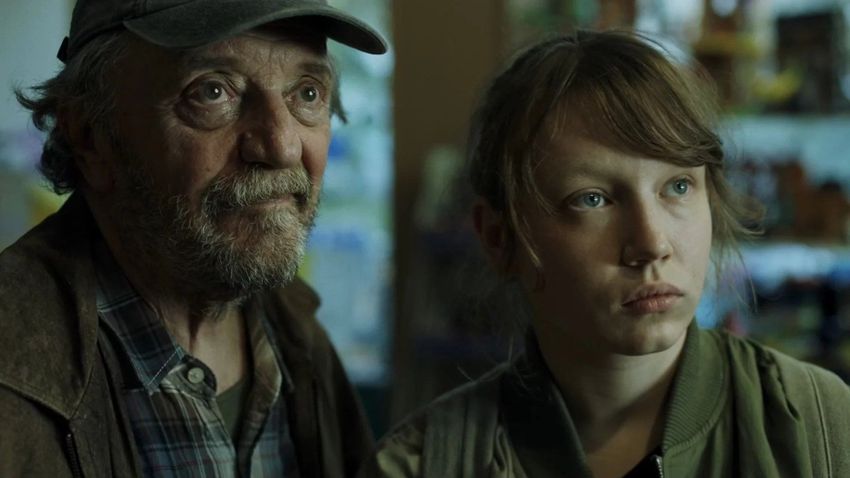László Szacsvay crowns his career of more than half a century in the drama.
Dániel Hevér's first full-length production is a rare and promising introduction. Made in the Incubator program of the National Film Institute, Something Madarak - just like Hat Weeks - portrays those living on the fringes of society with deep empathy, but with a good dose of wry humor through the relationship between a rebellious teenage girl and a grumpy pensioner.
In essence, László Szacsvay crowns his half-century-long career in the drama, and Lilla Kizlinger once again proves to be one of the most talented actresses of her generation.
Béla, a divorced pensioner who lives alone, does not really like the company of people, but one night, when he is alone drinking beer and watching a football game, he falls in his home and ends up in the hospital. After the tests revealed that this was not the first time that he had lost his balance, the son living in Germany was advised to place his father in a nursing home, as his condition was extremely dangerous. For the old man himself, this is tantamount to torture, as he hates nothing more than having his freedom restricted. Seventeen-year-old Zoé, who fails at school and lives with her alcoholic mother who constantly picks up new boyfriends, also works in the institution as a social worker, so when she meets Béla, a special friendship develops between the two outcasts.
the Hungarian Életrevalók characterizes the film, and there is a lot of truth in the statement, but what is really gratifying is that Valami Madarak also bids on its French predecessor. The latter is indeed a very heart-warming, but fake work: in it, a friendship develops between an aristocrat belonging to the top ten thousand and a black man in prison, and although it was based on actual events, its syrupiness made it quite difficult to take it seriously.
On the other hand, in this domestic production, the sympathy between the two people is much more believable, since they are only different in age and gender, but come from the same social class, they are similarly estranged from their families, and both are forced into a situation from which they want to break out.
Zoé figuratively tries to find a home for herself, completely hopeless, while Béla is not only confined to a physical space, namely the institution, but also a prisoner of her own, increasingly poorly functioning body.
And although it is an extremely cliché to call someone one of the most talented representatives of her generation, it was not by chance that Lilla Kizlinger was awarded the Silver Bear at just twenty years old for her performance in the 2021 Entenwe: Mendenhol látlak in Berlin.
This time as well, he gives an amazing performance as a rebellious teenager. And László Szacsvay's performance in the main role is quite astonishing, one could say the crowning achievement of his career spanning more than a decade and a half:
every little gesture of his is perfect and so natural that there is guaranteed to be no one who does not recognize him as someone in his circle of acquaintances. The same can be said about all the supporting characters, the casting is simply flawless.
Nagy Marcell's cinematography should also be highlighted: in similar socio-dramas, we are used to the fact that the characters are usually followed with a hand-held camera, with super-close settings, for the sake of a documentary effect, and in order to draw as much as possible into the given micro-world.
Here, on the other hand, quite poetic and carefully composed images alternate. However, this artistic presentation does not extinguish the sense of reality, does not make the film artificial, and does not detract from the emotional impact, but adds an additional layer to the drama.
And although those who consume similar European works in large quantities can easily deduce the twists and turns of the story one scene earlier, it can be said that sometimes some twists are especially predictable, this is perhaps the only negative that can be mentioned in relation to Some Birds. One of the greatest virtues of the film, however, is that director Dániel Hevér solves even the most oppressive situations with a good dose of wry humor, while relating to the characters with deep empathy. This is what they say is a promising first film debut.
Featured image: Lilla Kizlinger and László Szacsvay play genius in the film (Source: Mozinet)












